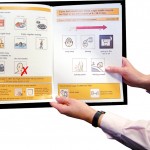
Making the decision to consent to medical treatment requires access to information, presented in clear and understandable ways. There is evidence that that people with learning disabilities do not always understand information about medications they are prescribed, for example from the medication matters project carried out at the Norah Fry centre which produced a series of resources, including a booklet for people with learning difficulties, their families or carers, a decision-making tool and a checklist of things that people can the doctor about medication . One study looking at the knowledge of support staff also suggested a need for better information to be made available
The researchers in this study wanted to look at whether such projects have improved the way in which patients with learning disabilities were involved in decisions about taking medications.
They used audit methodology to collect data on current practice concerning consent to treatment amongst people living in Salford against existing best practice guidelines.
They constructed a questionnaire which they used to gather information from a sample of 70 patients with learning disabilities to assess whether they had been given enough information to give informed consent. 45 out of 70 (64%) people completed the questionnaires.
What they found was that patients’ knowledge of their medications was poor. This was particularly true of their understanding of how long they had to take the medication, possible disadvantages and the name of the treatment.
They conclude that doctors are working with patients during consultations and discussing the medications, but that
delivery of this information needs to be improved, and patients’ understanding and recall need to be checked more thoroughly.
Difficult decisions: Are intellectually disabled patients given enough information to consent to medical treatment? Huneke N et al., in Journal of Intellectual Disabilities,16, 4 , 265-274
